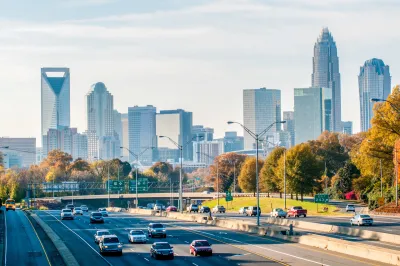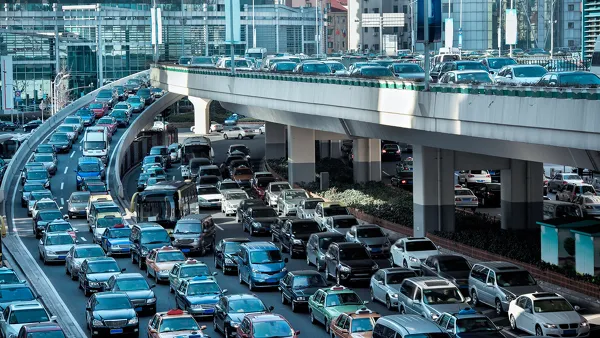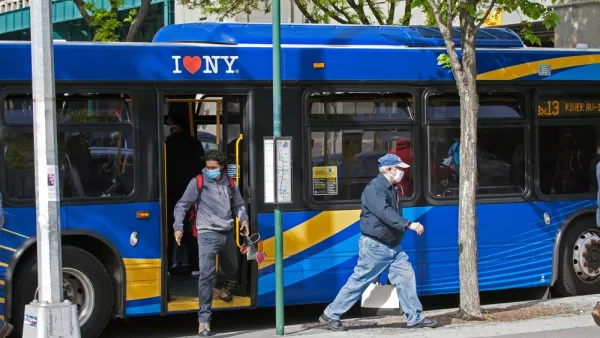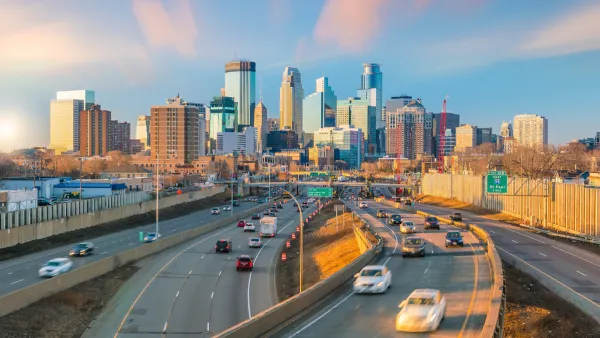With more people working from home since the pandemic, the area is seeing shorter commute times for cars and public transit.

In an article for WFAE, Tony Mecia describes how commutes in Mecklenburg County, North Carolina, home to Charlotte, have changed since before the Covid-19 pandemic.
Thanks to the sharp increase in remote work—triple the Charlotte residents work from home now than in 2019—commutes for those who do still go to a physical workplace are shorter. “In 2019, the average worker in Mecklenburg reported a commute to work of 26.7 minutes. In 2022, that average commute dropped to 24.4 minutes,” a 9 percent drop.
Another shift shows fewer people leaving for work early in the morning, with more people leaving home in the 8:00am hour, and traffic overall is more spread out throughout the day.
Over 80 percent of the county’s commutes take place in private vehicles. “Last year, the city of Charlotte set a goal that by 2040, it hopes to have what it calls a “50/50 mode share,” or have only 50% of commutes be people driving alone to work.”
FULL STORY: How Charlotte's commutes are changing: Shorter, later and fewer

National Parks Layoffs Will Cause Communities to Lose Billions
Thousands of essential park workers were laid off this week, just before the busy spring break season.

Retro-silient?: America’s First “Eco-burb,” The Woodlands Turns 50
A master-planned community north of Houston offers lessons on green infrastructure and resilient design, but falls short of its founder’s lofty affordability and walkability goals.

Delivering for America Plan Will Downgrade Mail Service in at Least 49.5 Percent of Zip Codes
Republican and Democrat lawmakers criticize the plan for its disproportionate negative impact on rural communities.

Test News Post 1
This is a summary

Test News Headline 46
Test for the image on the front page.

Balancing Bombs and Butterflies: How the National Guard Protects a Rare Species
The National Guard at Fort Indiantown Gap uses GIS technology and land management strategies to balance military training with conservation efforts, ensuring the survival of the rare eastern regal fritillary butterfly.
Urban Design for Planners 1: Software Tools
This six-course series explores essential urban design concepts using open source software and equips planners with the tools they need to participate fully in the urban design process.
Planning for Universal Design
Learn the tools for implementing Universal Design in planning regulations.
EMC Planning Group, Inc.
Planetizen
Planetizen
Mpact (formerly Rail~Volution)
Great Falls Development Authority, Inc.
HUDs Office of Policy Development and Research
NYU Wagner Graduate School of Public Service





























